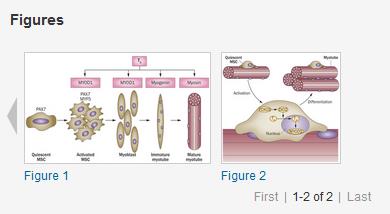We have seen the enzyme deiodinase 2 (DIO2) and its related genes being pointed at as a possible cause of some thyroid hormone issues. This paper goes on to point a finger at the activity of deiodinase 3 (DIO3). Clearly, the amount of T3 present will depend on the balance between DIO2 converting T4 into T3, and that of DIO3 converting T3 to T2.
Nat Rev Endocrinol. 2013 Dec 10. doi: 10.1038/nrendo.2013.238. [Epub ahead of print]
Thyroid hormones and skeletal muscle-new insights and potential implications.
Salvatore D, Simonides WS, Dentice M, Zavacki AM, Larsen PR.
Source
Department of Clinical Medicine and Surgery, University of Naples 'Federico II', Building 1, 1st floor, Via Pansini 5, 80131 Naples, Italy.
Abstract
Thyroid hormone signalling regulates crucial biological functions, including energy expenditure, thermogenesis, development and growth. The skeletal muscle is a major target of thyroid hormone signalling. The type 2 and 3 iodothyronine deiodinases (DIO2 and DIO3, respectively) have been identified in skeletal muscle. DIO2 expression is tightly regulated and catalyses outer-ring monodeiodination of the secreted prohormone tetraiodothyronine (T4) to generate the active hormone tri-iodothyronine (T3). T3 can remain in the myocyte to signal through nuclear receptors or exit the cell to mix with the extracellular pool. By contrast, DIO3 inactivates T3 through removal of an inner-ring iodine. Regulation of the expression and activity of deiodinases constitutes a cell-autonomous, pre-receptor mechanism for controlling the intracellular concentration of T3. This local control of T3 activity is crucial during the various phases of myogenesis. Here, we review the roles of T3 in skeletal muscle development and homeostasis, with a focus on the emerging local deiodinase-mediated control of T3 signalling. Moreover, we discuss these novel findings in the context of both muscle homeostasis and pathology, and examine how skeletal muscle deiodinase activity might be therapeutically harnessed to improve satellite-cell-mediated muscle repair in patients with skeletal muscle disorders, muscle atrophy or injury.
PMID: 24322650 [PubMed - as supplied by publisher]
ncbi.nlm.nih.gov/pubmed/243...
Rod
Image is thumbnails of the illustrations from the article.



